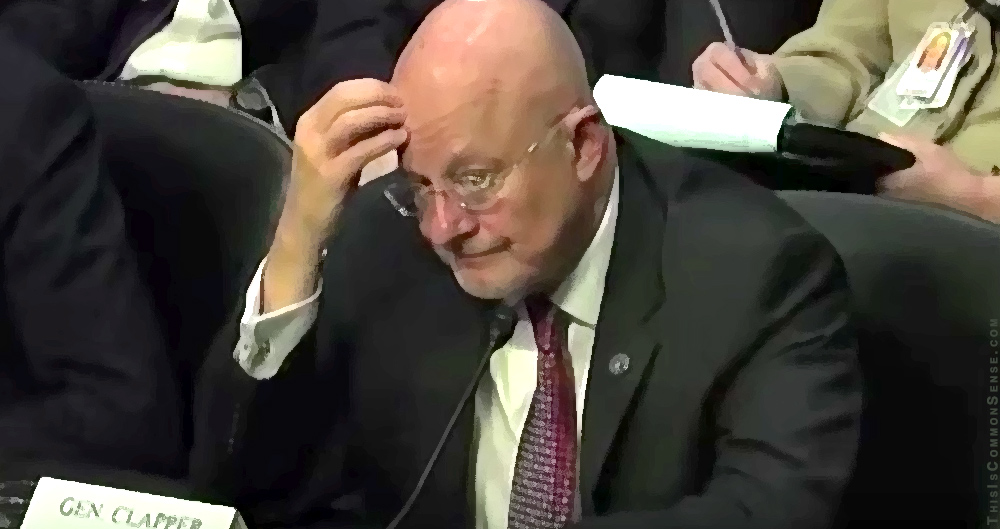Lying to Congress is a strange crime. A number of people have been prosecuted for it over the years, but Congress isn’t a court of law and, more to the point, Congress may present the densest source of lies in the United States.
The idea that it would be illegal for a citizen to lie to a den of liars is, well, a bit amusing.
But it is illegal, and definitely should be illegal, for government functionaries to give false testimony before Congress.
That’s why the case of the admittedly “untruthful”* James Clapper is so aggravating. When asked by Senator Ron Wyden, on the Senate floor, about data collection of phone calls by the U.S. federal government, he — the director of national intelligence under President Barack Obama from 2010 to 2017 — lied through his teeth.
And had not Edward Snowden leaked information on the National Security Administration’s metadata collection program, we would not have learned anything about it.
No wonder, then, that several congressmen want to prosecute Clapper before March 12, when the Statute of Limitations runs out on his crime. Steven Nelson at the Washington Examiner quotes Rep. Ted Poe (R‑Tex.), Rep. Thomas Massie (R‑Ky.), Rep. Louie Gohmert (R‑Tex.), and Rep. James Sensenbrenner (R‑Wis.) as all being in favor of siccing federal prosecutors on the forked tongue spymaster.
Senator Wyden warns that letting lies such as Clapper’s go unaddressed encourages Americans to be cynical about government, and “makes it possible, even probable, for hucksters and authoritarians to take power.”
Too late?
This is Common Sense. I’m Paul Jacob.
* Clapper’s March 2013 whopper at the Senate Intelligence Committee hearing was that the NSA was “not wittingly” collecting “any type of data at all” on millions of Americans. Later, to MSNBC, he characterized his artful dodge as having been “the least untruthful” way for him to respond.











